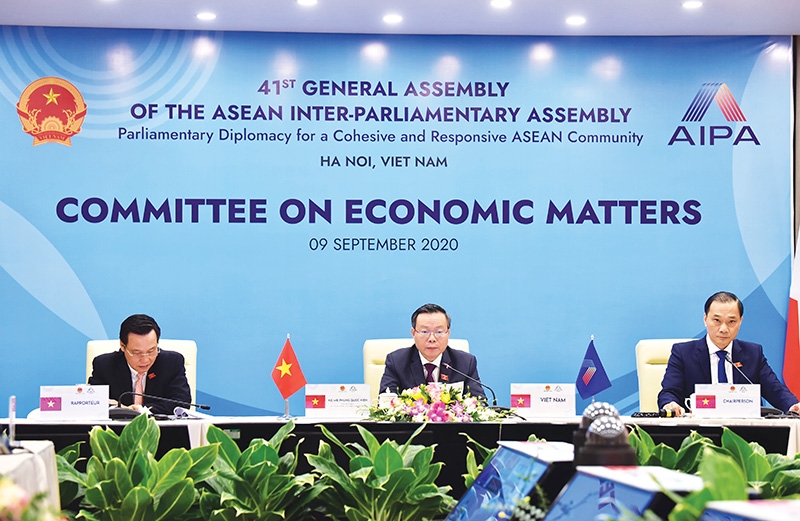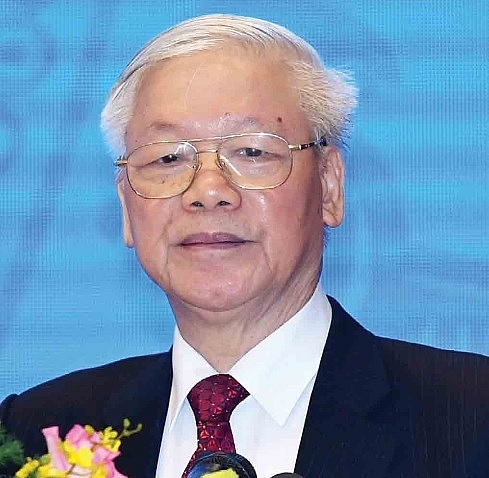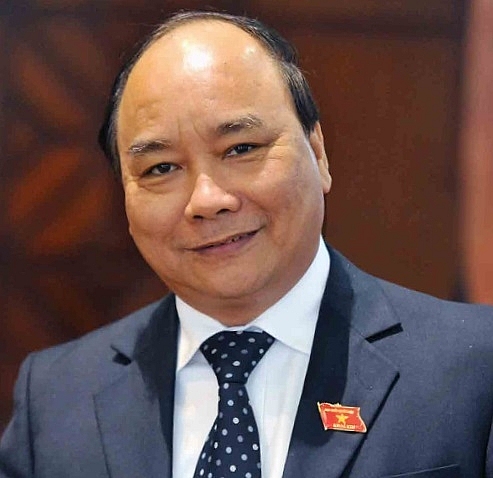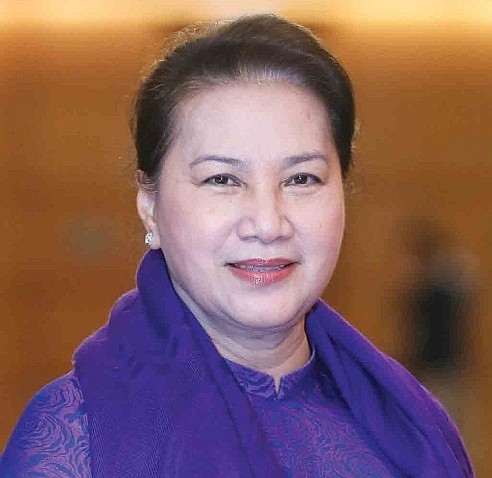ASEAN sets course for cohesive cooperation
 |
| AIPA 41 contributed to implementing the ASEAN Community Vision 2025 and post-2025 development orientation, Photo: Tuan Anh |
In addition to the 53rd ASEAN Foreign Ministers’ Meeting and related meetings considering proposals to forge more partnerships last week, the 41st General Assembly of the ASEAN Inter-Parliamentary Assembly (AIPA 41), which is the most important external event for Vietnam’s 14th National Assembly, also saw the inking, approval, and recognition of around 40 documents related to various sectors affecting the performance of ASEAN as a whole.
One of the common points of the documents is that they are ultimately aimed to foster the development of the bloc, which is currently being damaged by COVID-19. The Asian Development Bank projects that the bloc’s growth will decline from 4.4 per cent in 2019 to only -2.7 per cent for 2020, before bouncing back to 5.2 per cent next year.
Among the documents, a resolution on the role of parliaments in boosting the connectivity and economic recovery in ASEAN in the post-pandemic period was approved, paving the way for regional nations to design effective solutions to lift them out of difficulties and attract more investment as well.
“Economic cooperation in AIPA is one of the key issues, profoundly influencing other cooperation areas in the region,” stated Phung Quoc Hien, Deputy Chairman of Vietnam’s National Assembly (NA). “The ASEAN Community aims to create a single market and manufacturing base covering the free flow of goods, services, investment, capital, and skilled labour. This will help improve the effectiveness and competitiveness of the ASEAN market, and boost the attraction of investment into the region, creating shared prosperity for the whole region.”
“We feel happy that, since the ASEAN Economic Community (AEC) was established in 2015, we have reaped numerous achievements in economic cooperation, and hopefully bigger achievements will be harvested in the time to come,” Hien added. “This will also contribute to our efforts to realise the ASEAN Community Vision 2025 (ACV 2025).”
ASEAN Community Vision 2025
Member states are envisioning a peaceful, stable, and resilient community with enhanced capacity to respond effectively to challenges, and ASEAN as an outward-looking region within a global community of nations while maintaining centrality.
“We also envision vibrant, sustainable, and highly integrated economies, and enhanced ASEAN connectivity as well as strengthened efforts in narrowing the development gap, including through the Initiative for ASEAN Integration. We further envision an ASEAN empowered with capabilities, to seize opportunities and address challenges in the coming decade,” read a statement on ACV 2025.
“Our AEC by 2025 shall be highly integrated and cohesive; competitive, innovative and dynamic; with enhanced connectivity and sectoral cooperation; and a more resilient, inclusive, and people-oriented, people-centred community, integrated with the global economy to drive the regional economy forward,” it said.
The states undertake to achieve a highly integrated and cohesive regional economy that supports sustained high economic growth by increasing trade, investment, and job creation; improving regional capacity to respond to global challenges and megatrends; advancing a single market agenda through enhanced commitments in trade in goods and an effective resolution of non-tariff barriers; deeper integration in trade in services; and a more seamless movement of investment, skilled labour, businesspeople, and capital.
ASEAN member states also aim to achieve a competitive, innovative, and dynamic community which fosters robust productivity growth including through the creation and practical application of knowledge; supportive policies towards innovation; a science-based approach to green technology and development; embracing evolving digital technology; promotion of good governance, transparency, and responsive regulations; effective dispute resolution; and a view towards enhanced participation in global value chains.
| Nguyen Phu Trong - Party General Secretary, State President
The wider world and Southeast Asia are undergoing rapid, unheard-of, and deep changes, especially under the negative impacts of COVID-19 and of strategic collisions among major nations. Globalisation, and international connectivity and integration, are facing numerous difficulties and need adjustments to be suitable to the new situation. The strong development of science, technology, and digital transformation on a global scale has posed both opportunities and challenges for all nations. In this context, the ASEAN Community in general and AIPA in particular need to foster close links and their strengths in order to adapt to the new circumstances and meet the increasing expectations of the public, businesses, and international friends. With its open foreign policy of diversification, multilateralisation of international relations, and for the sake of peace, friendship, cooperation, and development, Vietnam retains close relations with ASEAN. A strong ASEAN with a central role as an impetus for regional and international cooperation will be both the mainstay and purpose of Vietnam. Whether the ASEAN Community will become successful or not chiefly depends on how it can serve and meet the practical benefits and aspirations of the public. Lawmakers and members of parliaments are important representatives of the people as they, as the bridge, help reflect people’s voices and aspirations, and at the same time help pervading the values and benefits of the ASEAN Community to people and businesses. Over the past 43 years, AIPA has enhanced its role well, while accompanying and making practical contributions to ASEAN’s development. More than ever, now is the time for AIPA to continue contributing to fostering ASEAN’s central role in the evolving regional structure – boosting multilateralism, international connectivity and cooperation, and respecting law for the sake of peace, stability, and prosperity in the region and the wider world. AIPA 41 is of great importance, contributing to successfully implementing the ASEAN Community Vision 2025 and post-2025 development orientation, effectively responding to complicated developments in the international environment and unprecedented challenges caused by COVID-19. Nguyen Xuan Phuc - Prime Minister, ASEAN 2020 chair
AIPA is a crucial organisation of legislative bodies in ASEAN. Over the past decades, AIPA parliamentary cooperation has always played an important role, combining with governments of ASEAN member states to keep peace, security, stability, cooperation and development, and strengthen the bonds among regional people. In Vietnam, the government and the National Assembly have close cooperation with mutual supplementation in performing legislative and executive tasks for a target of rapid and sustainable development, and deploying tasks of the ASEAN Community Vision 2025. The ASEAN executive and legislative channels must continue to closely combine in order to boost the successful implementation of master plans in three key pillars, namely politics-security, economy, and culture-society, and the materialisation of the ASEAN Community Vision 2025. They must also pay more attention to economic connectivity and development gaps, while intermingling and harmonising ASEAN policies with national development programmes. Next, we wish that members of parliament and AIPA member parliaments will muster the aspirations and will of people, and advance proposals, together with ASEAN governments, in policies on ASEAN development orientations, and form the post-2025 ASEAN Community Vision with people placed in the centre of development. Further, AIPA member parliaments must join hands with ASEAN governments to build the ASEAN Community based on rules, respect for the law, equality, mutual respect, and settlement of all disputes and differences in a peaceful manner and with respect for international law. It is also necessary to expand relations with partners, in which ASEAN must always firmly keep its regional central role. Finally, I would like to highlight dialogues and the valued voices of National Assembly members and AIPA parliamentary members and governments that are to boost solidarity among people, contributing to further sharpening cultural values and colours, for an ASEAN community full of solidarity and mutual affection. The ASEAN-AIPA high-level dialogue at the 36th ASEAN Summit is quite effective and needs promoting. It has helped governments to deploy many policies on improving people’s livelihoods and social security, and also pervade actions and doings of governments for people. Nguyen Thi Kim Ngan - National Assembly Chairwoman, AIPA 41 chair
For the first time in the 43-year history of AIPA, the AIPA General Assembly has been organised online. Amid the COVID-19 pandemic having serious impacts on political, economic, and social activities of all nations worldwide, our AIPA 41 organisation demonstrates strong determination and efforts of parliaments in accompanying governments to weather all difficulties, pushing back the pandemic, and driving forwards for the prosperity and happiness of all people, and for the cooperation and development of the ASEAN Community. This is the third time that the Vietnamese National Assembly (NA) has had the great honour of undertaking the important job of AIPA chair and host the AIPA General Assembly. This event underlines the role and responsibility of the Vietnamese NA and AIPA’s international mission in multilateral cooperation mechanisms. It is testimony to the spirit of solidarity, cooperation, and responsibility of NA deputies who are working for the benefits of people. In this spirit, the theme of “Parliamentary diplomacy for a cohesive and responsive ASEAN community”, together with the theme of ASEAN Chairmanship Year 2020, manifests the consensus and timely response of AIPA and its member parliaments to ASEAN governments and people in overcoming all difficulties, beefing up solidarity and cooperation, for the ASEAN Community with prosperity and sustainable development. In the AIPA Chairmanship Year 2020, the Vietnamese NA has timely, actively, and closely combined with ASEAN parliaments in organising many activities that contribute to promoting the roles of AIPA and its parliaments in the process of building up the ASEAN Community in all three pillars. Moreover, the Vietnamese NA has also actively expanded relations between AIPA and the Inter-Parliament Union, and actively contributed to the shared efforts of nations in addressing global issues. We strongly believe that with increased bonds that we are together building up, AIPA as legislative bodies of member nations will support ASEAN in enhancing the bloc’s central role in the regional structure, taking the initiative in responding to all opportunities and challenges, therefore contributing to maintaining peace, security and stability, with shared actions taken to protect the common benefits of the ASEAN Community from any difficulties and challenges. |
Momentum for realisation
In order to materialise the AEC by 2025, the bloc’s member states have vowed to create a more favourable business and investment climate in favour of businesses and investors. Investment will help their economies expand exports, create employment, and ensuring social security for all people.
One of the key priorities of Vietnam as ASEAN chair for the region is boosting economic connectivity and comprehensive links within the bloc and with partners via improving the regional investment climate to attract intra-bloc and non-ASEAN funding based on the regional shared spirit of constructing a single market and a shared production base.
This year Vietnam will complete removal of almost all import tariffs imposed on goods imported from ASEAN member states, making it completely favourable for enterprises to do business in the country, especially those investing in Vietnam and then exporting products to regional markets. Notably, since the AEC was established at the end of 2015 and through tariff cuts under the ASEAN Trade in Goods Agreement, Vietnam has been attracting a great deal of regional investment while its trade ties with regional members have also improved.
Statistics from Vietnam’s Ministry of Planning and Investment showed that in the first eight months of 2020, Vietnam swelled investment to a number of regional markets such as Cambodia ($15.7 million), Laos ($24.7 million), Myanmar ($38.3 million), and Singapore ($19 million).
As of August 20, Vietnam wooed $90.74 billion from ASEAN member economies including Singapore ($55 billion), Thailand ($12.4 billion), Malaysia ($12.8 billion), Indonesia ($590.6 million), and the Philippines ($265.3 million).
The first eight months of 2020 witnessed Singapore making the largest investment in Vietnam with $6.54 billion registered for 153 newly-licensed projects, and Thailand with 22 newly-licensed projects registered at $1.62 billion.
According to Vietnam’s Ministry of Industry and Trade, Southeast Asia is Vietnam’s fourth-largest export market after the United States, the European Union, and China. Vietnam’s export turnover to the region surged from under $1 billion in 1995 to $18.23 billion in 2015, and $17.45 billion in 2016.
However, the figure climbed to $21.7 billion in 2017, $24.7 billion in 2018, and $25.3 billion last year, up 1.9 per cent on-year. In the first eight months of 2020, the figure hit $15 billion, down 13.6 per cent on-year.
Meanwhile, Southeast Asia is also Vietnam’s third-largest import market. The country’s import turnover from other member states totalled $23.7 billion in 2016, $28 billion in 2017, $32 billion in 2018 and $32.1 billion last year. The figure touched $16.7 billion in the first seven months of 2020, down 11.3 per cent on-year.
Ensuring safety for all
Tong Thi Phong, Deputy Chairwoman of Vietnam’s NA, stated that in order to ensure safety for individuals, businesses, and investors, as well as to contribute to ensuring the realisation of the ACV 2025, the legislature “has and will continue to ensure an effective legal framework for implementing anti-pandemic activities, including social distancing, and 14-day isolation of patients and immigrants.”
“The NA has approved a state budget package worth VND62 trillion ($2.7 billion) so as to support the livelihoods of poor people and enterprises hit by COVID-19, while supervising activities and revising state coffers to boost public investment and economic recovery. Moreover, the NA has also enacted resolutions to help ease difficulties for businesses,” Phong said.
Currently, Vietnam has spent about $708.2 million fighting COVID-19 – considered a huge success, especially when comparing population size, proximity to China, and the amount spent by other nations, which in many cases has surged to billions of US dollars.
At the AIPA 41, all member states also said their nations have also issued packages worth billions of US dollars each to help enterprises and people out of difficulties caused by COVID-19. They have also agreed to boost the implementation of initiatives and priorities for the ASEAN Chairmanship Year 2020, with a focus laid on responding to COVID-19 and preparing for a comprehensive recovery plan for ASEAN after the pandemic, as well as contributing to realising the ACV 2025.
“The global impact of the pandemic on health, education and the economy has fundamentally changed the way in which we lead our daily lives,” stated Pehin Dato Abdul Rahman Taib, representative of Brunei’s Parliament. “It is necessary that AIPA member parliaments maintain a forward-looking approach and carefully adapt to ensure the continuity of AIPA’s work by upholding the true ASEAN spirit of ‘Unity in Diversity’.”
Parliamentary representatives from Indonesia, Malaysia, and Singapore also underlined the need to ensure safety for all ASEAN people and businesses, as this will help the bloc attract more investment and ensure trade flows more favourably.
Puan Maharani, Speaker of the House of Representatives of Indonesia conveyed her utmost appreciation to Vietnam’s NA for hosting AIPA 41. She emphasised on the important role of parliaments in encouraging ASEAN member states to “deliver adequate policy to curb the spread of COVID-19, reduce greater economic impact and ensuring social welfare as well as performing legislative duty through passing bills related to fiscal stimulus or strengthening social safety net.”
Meanwhile, Tan Chuan-Jin, Speaker of Singapore’s Parliament, underlined the need to cooperate in areas of common interest including cybersecurity, development of smart cities, and regional economic integration and transboundary challenges such as climate change, transboundary haze pollution and transboundary crime for the post-COVID-19 normal.
“This would ensure that ASEAN remains resilient and relevant in the decades to come,” he said.
| Significance of Vietnam’s AIPA Chairmanship Year 2020 and the 41st AIPA General Assembly Vietnam has had numerous advantages in undertaking the role as rotating chair of AIPA and the role as ASEAN chair this year. This has contributed to further enhancing Vietnam’s position and prestige in the region and the wider world. This is even more significant when the country is also a non-permanent member of the United Nations Security Council for the 2020-2021 tenure. The AIPA Chairmanship Year 2020 and the 41st AIPA General Assembly (AIPA 41) are an important event in the external activities of the 14th National Assembly (NA), contributing to highlighting the achievements of Vietnamese state diplomacy and NA diplomacy. This is the third time that the NA has undertaken the role as AIPA chair and organiser of AIPA General Assembly, demonstrating the role and responsibility of the NA in AIPA. This is also a big opportunity to promote the Vietnamese NA’s image as an active and responsible one, helping enhancing Vietnam’s role and voice in the region and the international community, and also further sharpening the bilateral relations between Vietnam and its partners, especially in the context of COVID-19 raging worldwide, forcing AIPA activities to be organised online for the first time. The AIPA Chairmanship Year 2020 and AIPA 41 are also of great significance in expanding information among all people in the country, Vietnamese overseas, and international friends about the Vietnamese NA and external activities that it organises as the host; in introducing the socioeconomic development achievements of Vietnam which has been boosting its international integration and development; in promoting Vietnamese people with dynamism and friendliness and the Vietnamese advanced culture full of national colours; and in connecting Vietnamese people and those in the ASEAN Community. Especially, the AIPA Chairmanship Year 2020 and AIPA 41 hosted and organised by the Vietnamese NA has three key contents initiated by Vietnam and implemented for the first time in AIPA General Assembly meetings. The contents include the organisation of a symposium on parliamentary cooperation in culture and education pertaining to sustainable development; the establishment of a forum on AIPA young parliamentarians; and conferring an AIPA Distinguished Service Award. Source: AIPA Organising Committee |
What the stars mean:
★ Poor ★ ★ Promising ★★★ Good ★★★★ Very good ★★★★★ Exceptional
Themes: Drive ASEAN Forward
Related Contents
Latest News
More News
- France supports Vietnam’s growing role in international arena: French Ambassador (January 25, 2026 | 10:11)
- Foreign leaders extend congratulations to Party General Secretary To Lam (January 25, 2026 | 10:01)
- Russian President congratulates Vietnamese Party leader during phone talks (January 25, 2026 | 09:58)
- Worldwide congratulations underscore confidence in Vietnam’s 14th Party Congress (January 23, 2026 | 09:02)
- Political parties, organisations, int’l friends send congratulations to 14th National Party Congress (January 22, 2026 | 09:33)
- 14th National Party Congress: Japanese media highlight Vietnam’s growth targets (January 21, 2026 | 09:46)
- 14th National Party Congress: Driving force for Vietnam to continue renewal, innovation, breakthroughs (January 21, 2026 | 09:42)
- Vietnam remains spiritual support for progressive forces: Colombian party leader (January 21, 2026 | 08:00)
- Int'l media provides large coverage of 14th National Party Congress's first working day (January 20, 2026 | 09:09)
- Vietnamese firms win top honours at ASEAN Digital Awards (January 16, 2026 | 16:45)




 Tag:
Tag:



















 Mobile Version
Mobile Version